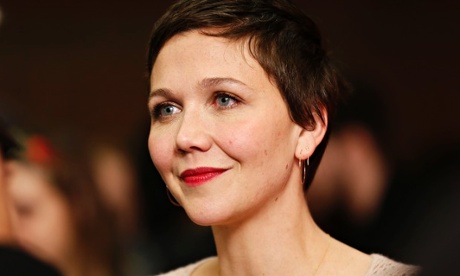
I didn’t know my real name until I was 35. I needed my birth certificate, and when my dad found it, it said that my name was Margolit. It was a bit of a shock. I’d always thought my full name was Margaret – never heard of Margolit. Neither of my parents can remember how it got on the birth certificate.
My brother [actor Jake Gyllenhaal] and I are closer now than we’ve ever been. We’re friends now, whereas growing up I always saw him as my little brother. My earliest memory is of him still in my mum’s huge belly. I was about three.
There’s something nice about being instantly recognised for what you do. But I don’t feel comfortable with paparazzi intrusion in my everyday life. There’s an antennae that goes up even if I can’t see them – I just know they’re there. My daughter finds it scary and upsetting.
Being politically active is incredibly important to me. My parents have been politicised and radical throughout my life – they taught me that I’m a part of a global community and that it’s partly my responsibility to fight for what’s right.
A real connection with another person scares me. Interacting with other people, letting them see who I am, is frightening. But I’ve learned that trying to be very “good” doesn’t create real connection. You have to be real. Let go.
Therapy was incredibly enlightening. I don’t think it’s only necessary if you’re unwell – it’s a useful tool for me to understand my own mind and how it works.
Motherhood brings you to your knees in a way that doesn’t leave room for you to judge others. It makes you see that there’s no ideal – a constant struggle, constantly compromising, but ultimate love.
Some of my characters are more alive than I am. I’m more daring in my work than I am in real life: doing a wild sex scene or a really emotional scene where you break down into tiny pieces in front of a camera changes you. It’s freeing. And sometimes it can be sad to let go of that freedom.
I have a raging temper. I’ll shout and scream, then it passes like a wicked storm.
Describing someone as quirky is a way of erasing them. What does it even mean? In so many interviews over the years that’s how I’m described. It doesn’t sit comfortably with me.
There’s been a shift in how women in Hollywood are viewed recently. In second-rate work and sitcoms, the need for a “hot girl” still exists, but in first-rate work, women of all ages, shapes, sizes are getting work. It’s sexier when a woman isn’t conventionally beautiful. How hot was Amy Adams in American Hustle?
I’m claustrophobic. It’s taken me years to be OK on the subway, but in taking my daughter to school I’ve conquered it. Don’t even talk to me about elevators.
I used to be so tough. I’ve become much more vulnerable as I’ve gotten older. We all soften with age. I feel a lot more sensitive and less strident in the world than when I was in my 20s. I had more fight then, but I prefer the way I am now.
The Honourable Woman continues on BBC2 at 9pm on Thursdays

